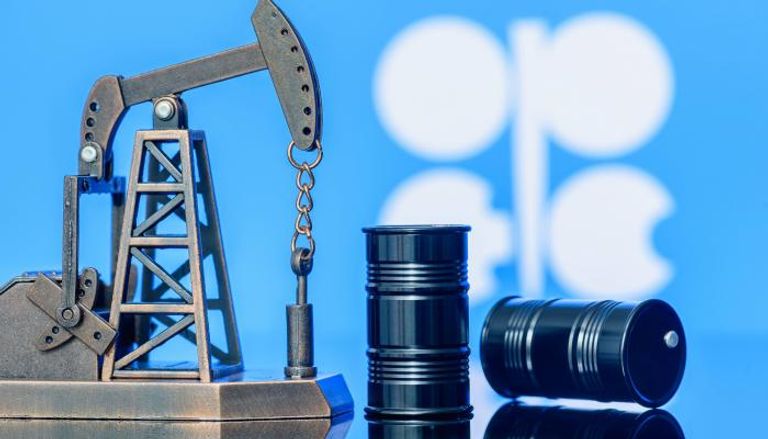
-
Published: 04 June 2023

The "OPEC+" meetings are waiting for a decisive decision
In an atmosphere dominated by calm, despite the state of intense anticipation from the oil markets, the oil ministers of the OPEC member countries held a short meeting at the headquarters of the organization's General Secretariat in the Austrian capital Vienna, but the ministers left the building after the meeting, most of them did not respond to journalists ' questions, and did not comment on the possibility of issuing decisions related to production policy.
Edited by| Tony Wild
Economic section - CJ journalist
Vienna - June,4,2023
With OPEC ministers headed by Saudi Energy Minister Prince Abdulaziz bin Salman coming out "reassuring hand in hand," he gives a strong signal that there is a state of consensus and understanding among the organization's members.
It is expected that the "OPEC+" meeting will be held in person, at two in the afternoon local time of the Austrian capital Vienna (12:00 GMT) to discuss new developments in the oil market and decide on the current production policy.
This comes amid conflicting expectations regarding the direction of the "OPEC+" alliance, which may explore possible options, including an additional reduction in oil production, but the majority of analysts point to maintaining the current level of reduction, without changing the level of production, in order to maintain market stability.
The general impression in Vienna seems to be that there is no general agreement or direction in which everyone is talking about a particular step until this evening, which gives different indications to the "OPEC+" alliance, which includes the organization of the Petroleum Exporting Countries (OPEC) and allies, led by Russia, and opens the door to several possibilities, including new production cuts that may reach one million barrels per day, as OPEC is facing a decline in oil prices with a looming supply glut.
This is in addition to the current cuts of two million barrels per day and a voluntary 1.6 million barrels per day announced in a surprise move last April and entered into force last May, and if this is agreed, the total production cuts will rise to 4.66 million barrels per day, or about 4.5 percent of global demand.
Also, some ministers spoke to journalists at their hotels in Vienna, as Iraqi Oil Minister Hayyan Abdul Ghani confirmed to journalists that it is too early to talk about OPEC+ reducing oil supplies by about one million barrels per day and that these matters have not yet been touched upon, stressing that "the coalition will not hesitate to take any decision that achieves more balance in the global market".
In the same context, UAE Energy Minister Suhail Al Mazrouei said that"there is an aspiration for a decision that ensures a sustainable balance of supply and demand".
"The alliance is solid. We will always take the right decision to balance the markets, and we will also show our readiness to face any challenges that may come in the future,"he said.
Before the upcoming meeting of the "OPEC+" alliance, crude oil prices rose, the last trading of the week, by more than two percent, supported by the approval by the US Congress of the debt ceiling agreement that avoids the government in the world's largest oil consuming country defaulting on its debts, as well as the publication of jobs data that boosted hopes for a possible halt to raising interest rates in the United States.
For his part, Iranian Deputy Oil Minister Amir Hossein Zamani-NEA said that the OPEC countries did not discuss at today's meeting in Vienna the possibility of reducing oil production by OPEC+ members, adding that "this topic is on the agenda of the general meeting of the alliance .
Hours before the start of the meeting, the Kremlin confirmed the coordination between Riyadh and Moscow on oil production policies within the framework of the OPEC+ alliance, as Kremlin spokesman Dmitry Peskov noted two days ago in response to a question about relations with Saudi Arabia, saying that they are "constructive, based on mutual understanding, mutual respect, mutual trust and very practical".
The "OPEC+" alliance pumps about 40 percent of global production, which means that its decisions on production policy have a significant impact on oil prices. Production cuts usually take effect the month after they are agreed, but ministers can also set a later date for implementation.
{source}<script async src="https://pagead2.googlesyndication.com/pagead/js/adsbygoogle.js?client=ca-pub-4474625449481215"
crossorigin="anonymous"></script>
<!-- moss test ad -->
<ins class="adsbygoogle"
style="display:block"
data-ad-client="ca-pub-4474625449481215"
data-ad-slot="6499882985"
data-ad-format="auto"
data-full-width-responsive="true"></ins>
<script>
(adsbygoogle = window.adsbygoogle || []).push({});
</script>{/source}
